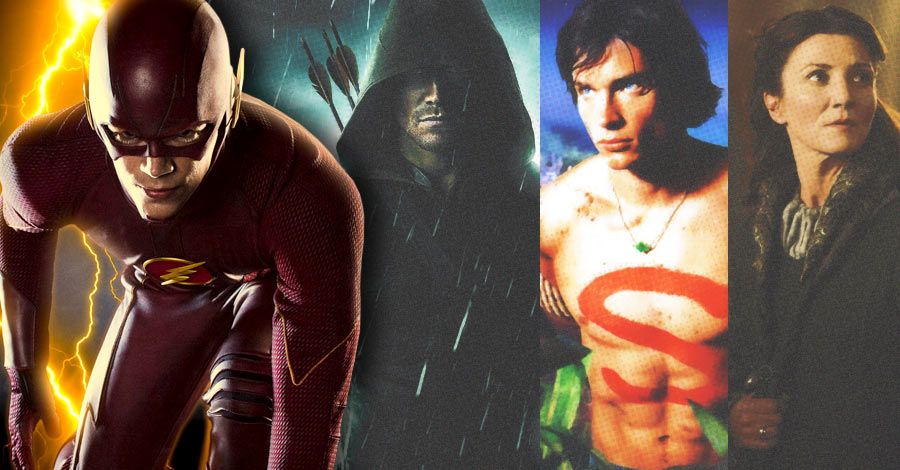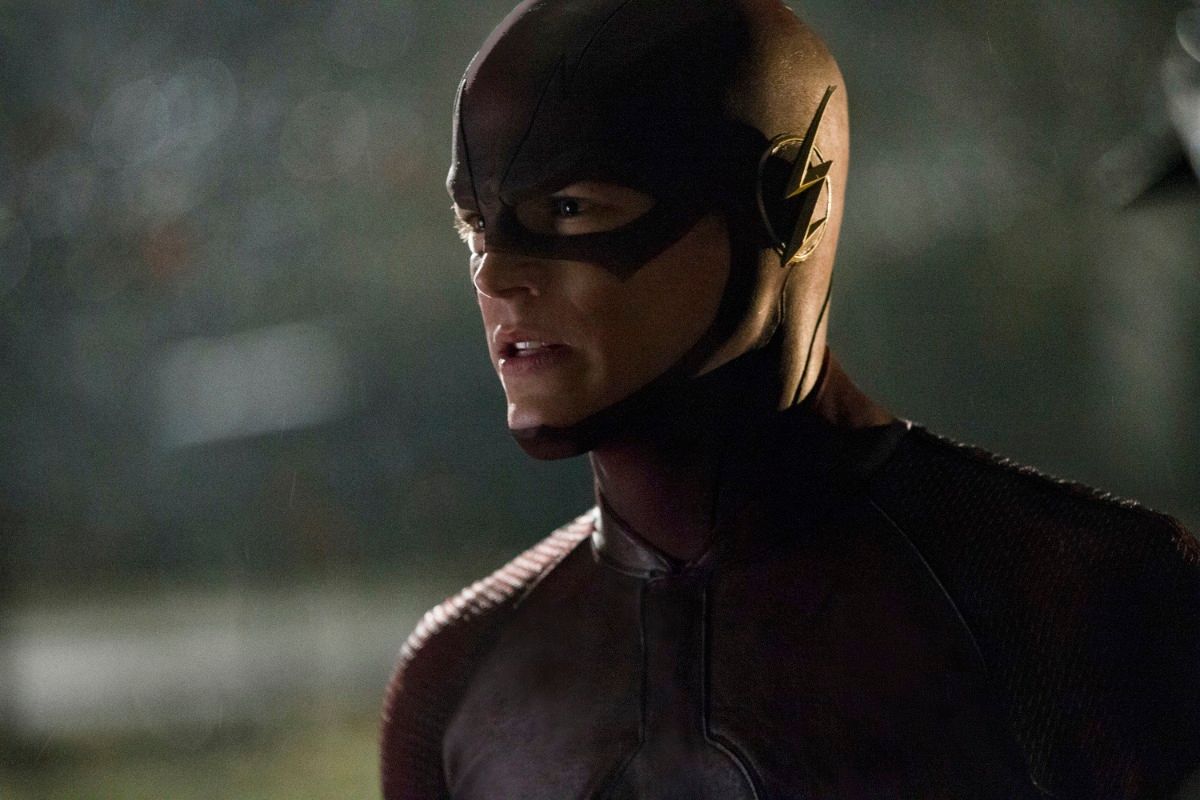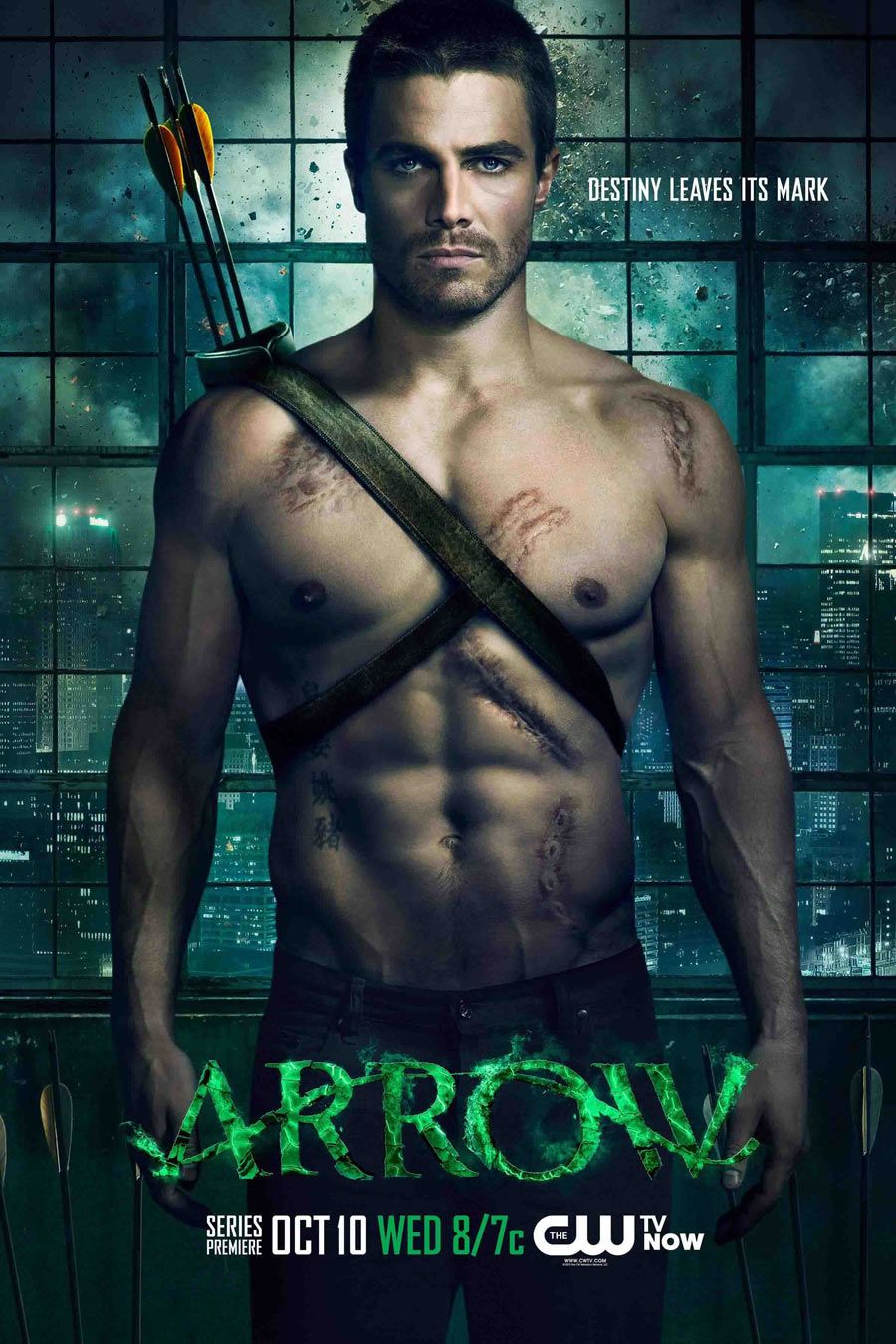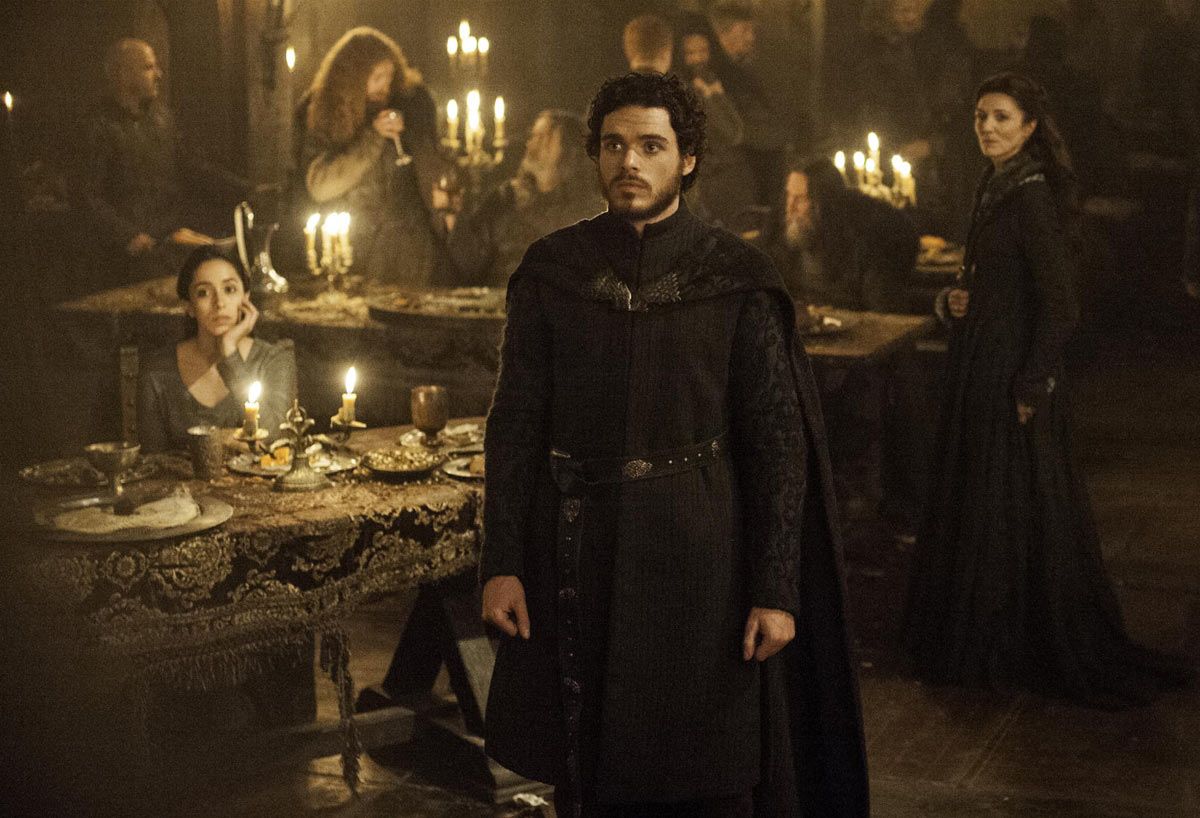David Nutter possesses the Hollywood equivalent of the Midas Touch. Over the course of his career, the in-demand Nutter has directed nineteen pilots, including fan favorites "Smallville," "Supernatural," "Terminator: The Sarah Connor Chronicles" and "Arrow." Of the pilots he's had a hand in, seventeen have gone to series. By any measure, that's an impressive track record, one which bodes well for the most recent project he's turned his attention to: The CW's much-buzzed-about series of the 2014 Fall season, "The Flash."
See More of "The Flash" with Five-and-a-Half Minute Trailer, New Clip
With Barry Allen racing onto the screen this fall, CBR spoke with Nutter about what's involved in building a successful pilot and what it was about the "Arrow" spinoff which appealed to him. We also spend some time in "Smallville," Westeros and New Mexico, as Nutter talks about directing the infamous Red Wedding episode of "Game of Thrones" and shares a story of how Heath Ledger came this close to making "Roswell" a very different series.
CBR News: You've been nicknamed "The Pilot Whisperer." What's most rewarding about being with a series right at the beginning?
David Nutter: As a director, you are involved in the casting of the regulars, which is a big part of the process. I'm also involved in the development of the script and the adjustment in scenes to make them something I can get my head around more. And there's also really spending more time with the writers in that first situation and trying to pull from the pages of what they wrote. "How do we visualize this? How do we make this real life? How do we create this world?" It's nice to be that conduit for the writers to put something on stage.
At what point did you become the go-to-guy for pilots?
I'm not really sure when that started. All I know is I've had an overall deal with Warner Brothers Television since the "Smallville" pilot; that was my first pilot for Warner Brothers Television. I have to do pilots for them, but I get a chance to spend time and find the people that work best with me. We get a chance to figure out what we're going to do together. The "Smallville" pilot is the one I get a lot of attention for. I did a couple of earlier ones, but the "Smallville" pilot is the one that got things really rolling.
What makes a captivating pilot, not only for you, but for the audience?
What's important is you have to care about what you're watching and the characters you're watching and what they are going through. Without having an emotional connection or some relatability to the characters, there's really nothing to root for, in some respect. No matter what world you're creating, whether it be a real world or a fantasy world, you still have to make the characters relatable or somewhat understandable. That's really important to start with, then you need compelling drama. You have to have a story that has twists and turns. You have to have something that's surprising, that's clever and you haven't seen before. When I finish reading the last page of the script, I want to say to myself, "I want to know what happens next." Loose ends are important. Question marks are important. Getting viewers to come back is the real key to making something successful.
Many of your pilots feature up-and-coming actors. What do you look for in a lead?
It depends on the situation. I've been very fortunate to work with David Rapaport, who cast Stephen Amell as Arrow and Grant Gustin as Flash. He's a wonderful ally. What I think we look for is the charisma factor. When someone walks in the door, something has to hit you, even before they say a line or word. It's the power of attraction. All those things have to come into play here with respect to who has that "IT."
You may have someone who walks into the door, who you don't feel has "IT," but when they start to read and become the character, they can surprise the hell out of you. I always find that rewarding. Other times, people come in and they look like they have the part, but when they read, it doesn't pop.
It's no secret that "Supernatural's" Jensen Ackles came close to landing the Clark Kent role in "Smallville." Do you have any other similar casting stories?
The casting situation that comes to mind for me is, I was doing the "Roswell" pilot. Jason Behr is a tremendous actor and we couldn't have done the show without him. He was exactly right for the role. But, early on in the process, before we even had the chance to meet Jason, an actor came in and read for the role. I thought he was perfect. Jason Katims thought he was perfect. We brought him in to the network and they just didn't think much of him and that he wasn't right for the role. I was definitely let down by that, because it was Heath Ledger.
You've now directed pilots for "Smallville," "Arrow" and "The Flash" -- are you a particular fan of the superhero genre?
I enjoy the hero genre more than anything else. I enjoy origin stories. I enjoy doing stories about people who learn what they are capable of. I enjoy telling stories where people have to do what they do and it's not really a choice, it's basically something they are drawn to. It's not a life choice, but something they are compelled to do, and something that can sometimes be life and death. I love those life choices and I love the stakes that it involves. That's an important part of what I love about doing these shows.
Do you approach more fantastical pilots in the same way as you would something more grounded, like "The Mentalist?"
In some respect, I treat them, dramatically, the same way. I treat the performances the same way. I want to make something like "Arrow" and "Flash" relatable and understandable and not make it cartoonish. I think people get involved in a show like this and they think, "Oh, the effects are cool, but the performances may not be as strong." To me, it's working with people like Andrew Kreisberg and Greg Berlanti and Geoff Johns, who understand what great storytelling is and working with them hand-to-hand to really make the "Arrow" series and the "Flash" series something that is grounded in reality. I think it makes it more compelling, more realistic and more enjoyable for an audience because they get invested in a show that has real-life stakes in it.
Did you predict "Arrow" would become the breakout hit it has?
I had a pretty good notion it would, because I loved the script so much. When Stephen Amell came in to read, I said, "That's our guy." We all said that. I thought we had something special going on.
You recently wrapped the "Flash" pilot. How impressed were you with Grant Gustin?
As impressed as I've been with any lead of any pilot I've ever done. He was truly magical. He was quite fantastic and had amazing chops and composure. He had such wonderful depth and power and richness. I think the audience will love him.
As the director, you set the tone and look for a series. What was your vision for "Flash?"
We were very happy with how "Arrow" turned out. What we wanted to do was make the show have some other notes in it. There's humor in this pilot, which fits very well. It's a little bit brighter of a show. It really encapsulates who Barry Allen is as a character, and who the Flash is in the comics.
Did you turn to a particular run in the comics for inspiration?
Geoff Johns, who had written so much of the Flash lore over the recent years, was one of the screenplay writers. We utilized his knowledge and expertise in this world. Greg and Andrew are quite aficionados as well, Andrew being a comic book writer himself. We all relied on each other to give our best work. It was a real fantastic community effort that worked out beautifully.
With "Arrow," you recommended directors for the earlier episodes. How invested will you be in "Flash" after the initial stages?
I'm going to be directing the first episode of "Flash." Anything they need from me, I'll be there to help with to get this thing off the ground and going in the right direction.
Do you feel "Arrow" and "Flash" will have the same legs as "Smallville?"
"Arrow" is proving to have the same legs. It's the most popular show on the network. It's in the third season, and it's only growing stronger and better. I definitely think it can. Hopefully "Flash" lasts at least half as long [as the others], because then we'd be in great shape.
Speaking of going the distance, did you ever imagine "Supernatural" would still be going strong 10 years after it debuted?
"Supernatural" was a great show. It was a show which, again, where you talk about life choices and what characters have to do, these are two brothers, who love each other deeply, who are basically trying to find who killed their mother and trying to find the whereabouts of their dad. That's the starting off point of the show. They've been very clever and been able to create these characters and enhance them to the point where, now, their dad's mission is their own mission. It's compelling stuff. It's fun, it's sexy and it's sassy. The bottom line, too, is when it comes to that casting, Jensen and Jared [Padalecki] are so perfect together and so enjoyable to watch.
What do you have in the pipeline next?
I'm directing episodes 9 and 10 of "Game of Thrones." We'll be in Ireland, Croatia, Iceland and other parts of the world.
You directed "Game of Thrones'" shocking Red Wedding massacre episode. What sense, if any, did you have about how big that episode would be while you were working on it?
All I know is the writers of the series, David Benioff and Dan Weiss, had talked to me during the season when they liked what I was doing. They said, "We want you to direct season three's Red Wedding." They kept saying how important it was and what a game-changer this episode was going to be. I started to get nervous immediately, and got very worried. As I started to get closer to it, and found out what I was doing, it was an awesome task to do these characters justice and do the story justice!




